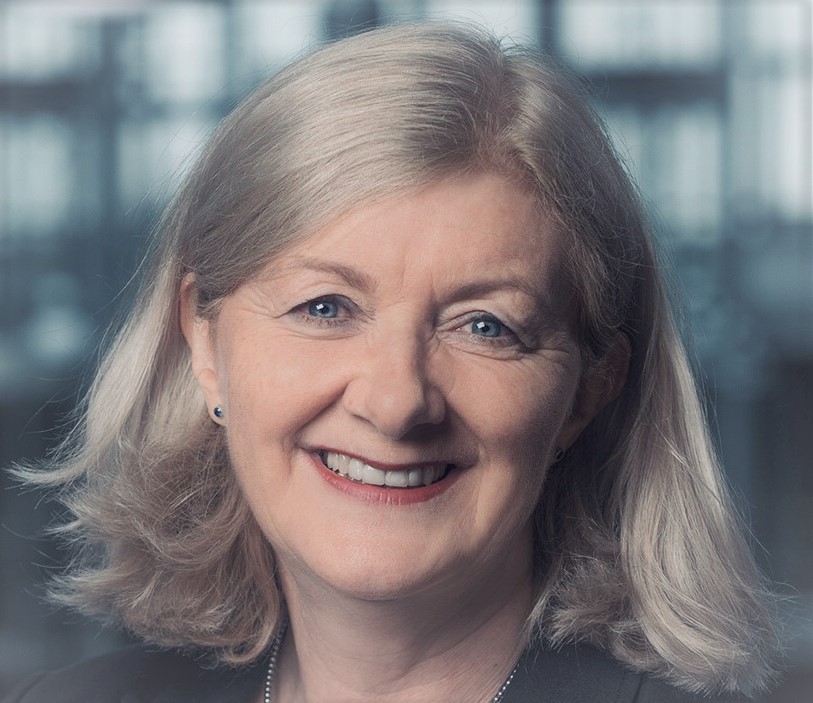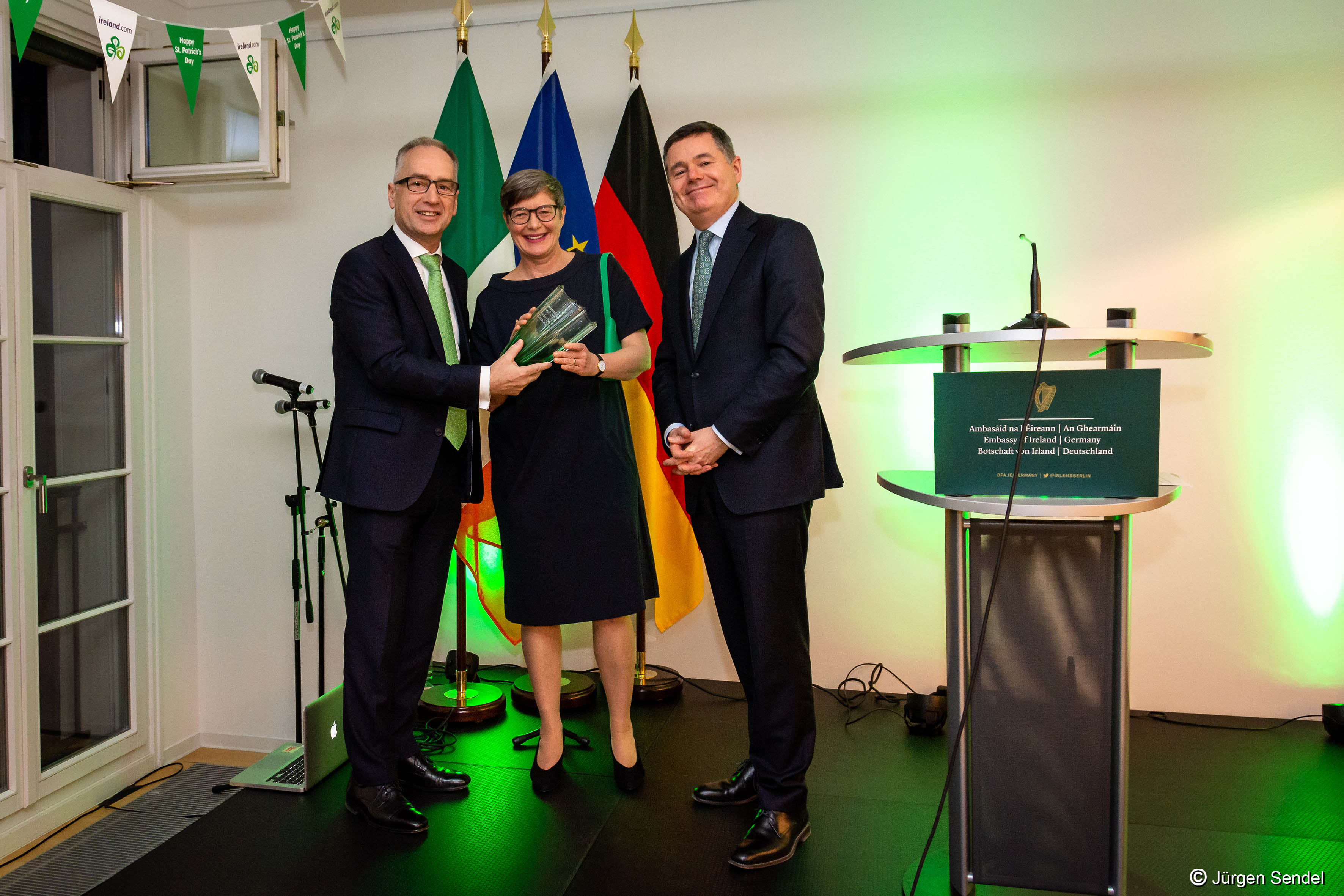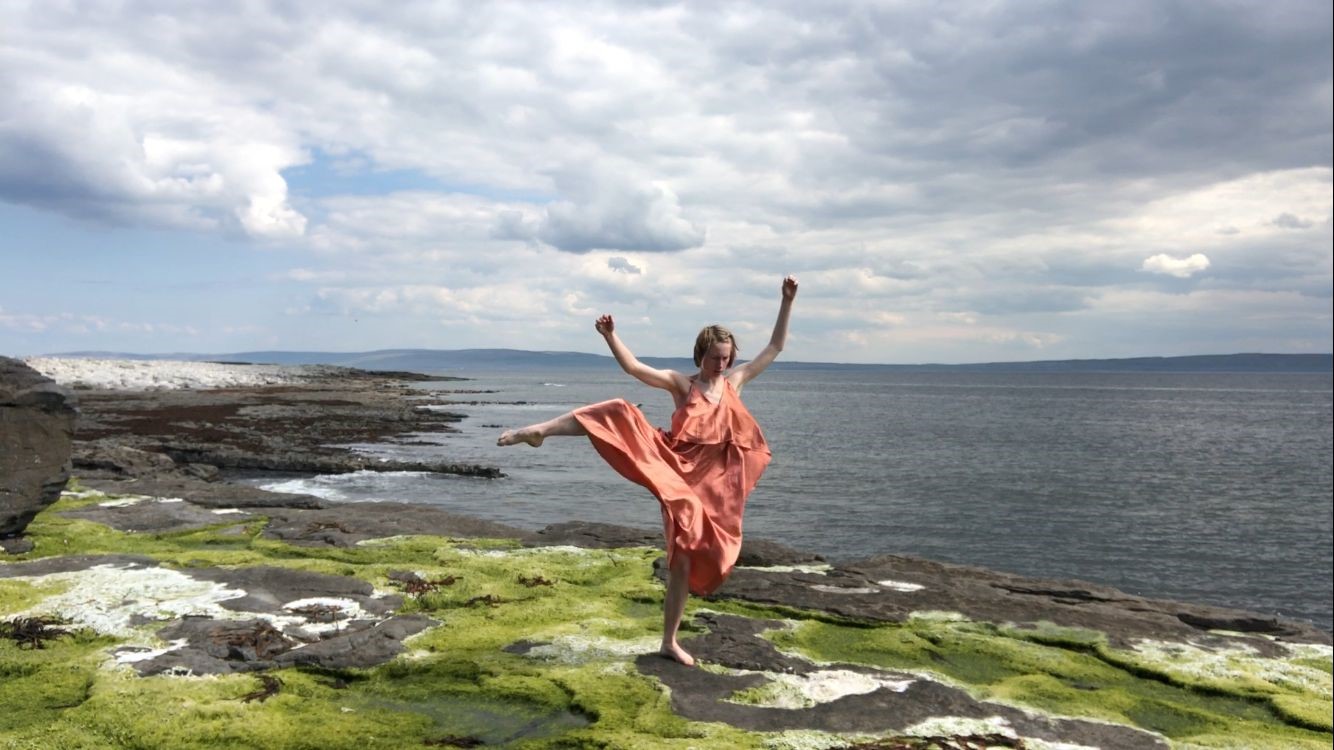Berlin Science Week - Irish Scientists in Germany - Dr. Aileen Grassman
News
26 October 2023
This year, as part of Berlin Science Week, the Irish Embassy in Berlin is profiling Irish scientists who are bringing their scientific expertise to the research, policy and business sectors in Germany.
Today, we have Dr. Aileen Grassmann the Director of Chronic Renal Replacement Therapies at Fresenius Medical Care in Bad Homburg, Hesse.
What is your area of competence?
From the point of view of which subject I specialized in in my studies, that would be physics, summitting in interplanetary space physics research. Lack of permanent employment opportunities in space research at that time, coupled with my interest in the practical application of scientific knowledge, triggered my change to the medical device industry. Now, after over 30 years working in this field, my area of competence is “medical science”, more specifically, science as applicable to the research, development, and benefit-risk evaluation of medical devices for the treatment of patients with end stage renal failure.
Why is this area of study important?
Dialysis is a life-saving therapy for hundreds of thousands of people worldwide. Physics, biology and chemistry, and their interplay, are the foundations of this therapy and of most other applications of medical devices. These classical science subjects, together with associated technological, engineering, and biomedical studies, ensure the safety and effectiveness of the medical therapy they are designed for. Science can also play a pivotal role in therapy cost-effectiveness and environment-friendly resource management. For example, the development of dialysis treatment options requiring significantly less amounts of highly purified water. [87]
How did you come to live in Germany?
I had the good fortune of having one of Ireland’s leading scientists, Prof. Susan McKenna-Lawlor, as my Ph.D. supervisor in Maynooth University. She collaborated with the Max-Planck Institute for Solar System Research here in Germany. In the scope of that cooperation, the institute offered me a Ph.D. student scholarship followed by a post-doctorate research stipend. [55]
What do you miss about Ireland?
The banter, the humour, the general friendliness.





